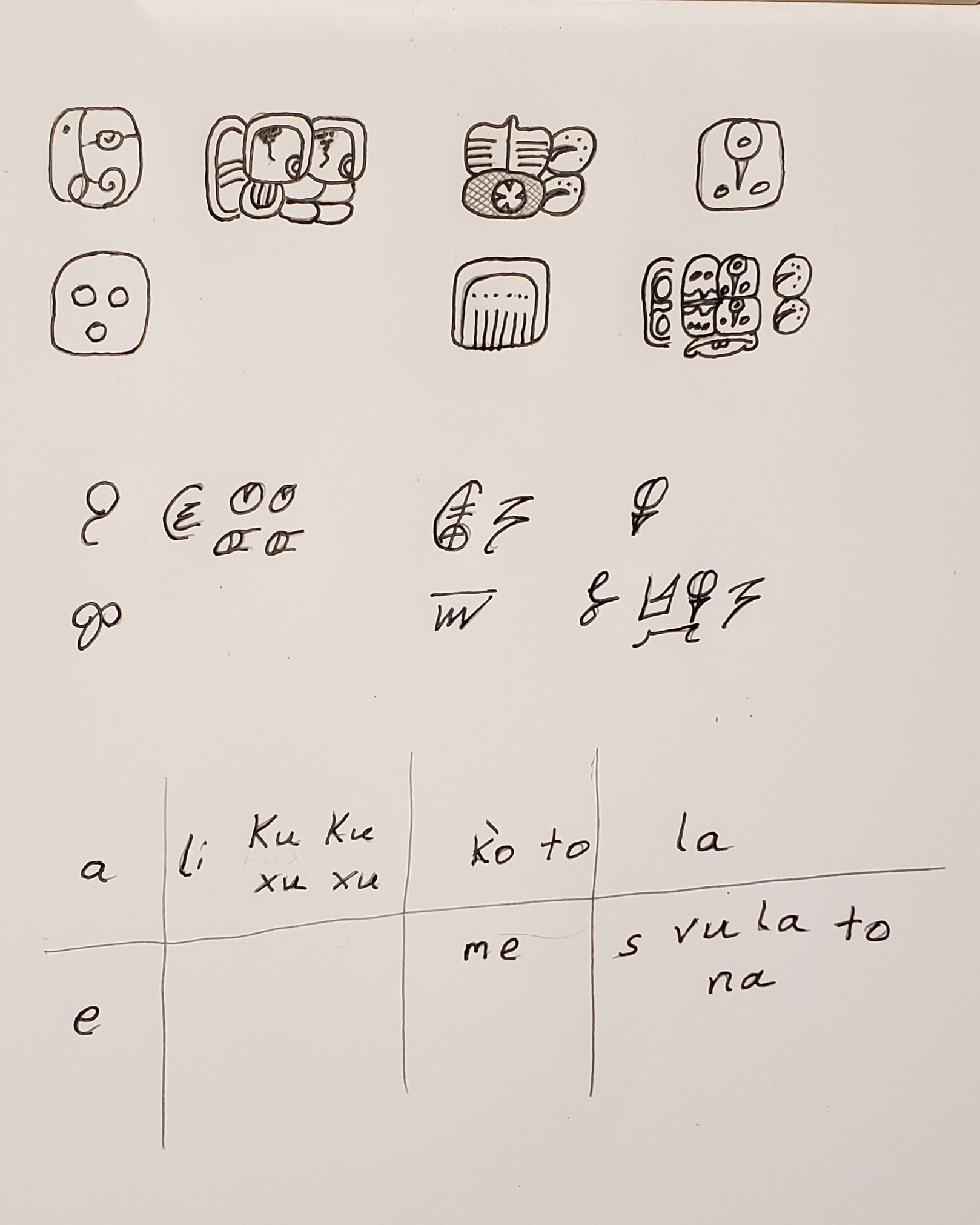Note: This is a work in progress and just a place holder for jotting my thoughts down.
Disclaimer: This should not be viewed as being a legitimate source of information, and just as something fun (and I do find it fun, 😊 ). As well as I am getting older, and my hardware is fairly outdated, and the programmers are a joke. So expect a lot of this to be the mere musings of a madman.
I will be updating this, eh, as much as I can. Anyway, let’s do this thing.
I have had this idea of writing Tzotzil (as it’s the only Mayan dialect I know well enough) with the Mayan characters, and the following are the rules that I am attempting to adhere to.
Basics
- Abide as much as possible with known Mayan rules and knowledge of their writing.
- Standardize and simplify the characters as much as possible as if they have continual use into a college setting, internet chatroom setting, written novels, mathematical texts, technical documentation, or children passing notes in grade school.
- If the need arises to create a character, use only what is known.
(And I’ve lost my train of thought for the moment. Ok, at least I got this part started).
What I’m working on at the moment is writing down the lyrics to Vayijel’s “Kux Kux”.

Top: Is a fancier writing and closer to the original Mayan.
Middle: Is a more simplistic shorthand which I am attempting to further simplify the codices written forms.
Bottom: Is a transliteration of the characters used.
Non Modified Characters
a, li, ku, to, la, e, me, na.
Modified Sounds of Known Mayan Characters (That follow Mayan rules).
- vu <= huun (Huun is the Yucatec word for paper, which is vun in Tzotzil).
- s <= u (u is the third person pronoun in Yucatec, and since there are several characters for the sound u, I repurposed one of those characters for s, which is the third person pronoun in Tzotzil).
Modified Characters of Known Mayan Characters (That do not follow Mayan rules).
- xu <= nuuk (I have found a ‘xu’ character in my “The New Catalog of Maya Nieroglyphs Vol. 2”, but haven’t implemented it as of yet).
- Since ku is spelled twice, I added an extra tail onto the character xu to reduplicate it across both ku characters.
- k’o <= o embedded with the letter k’i.
The final word “svulanot”, is spelled “s vulan[a] to” with “s” and “to” as affixes separated by a space to the verb vulan[a], but this may change once I start making it possible to write these characters much smaller (as should be for written novels, text books, etc).
(Ok, I’ve spent what little brain power I’ve had…Man, I hope I can remember this…I really really enjoy this kind of thinking, heh).
(Also, if ya’ll have any questions, just ask. Maybe it will help this aging mind to concentrate a bit better…Anything is possible, 🤣 ).


Kosher! I found the Mayan Hieroglyphics Database and just a little digging around I can see that my thinking on this is not that far fetched as I had felt.
So how I was planning on standardizing the embedding of sounds is Mayan, and that is what I will stick with. Preceding sound is embedded within the succeding sound. (IE initial sound is embedded within the final sound). (That is lu+ku will be pronounced as kul, and chi+k’in will be k’ich and not chik’in or chik’).
However, I don’t have any plans on writing similar to how k’inich is written, with the middle sound being under the embedding sounds like in the picture.